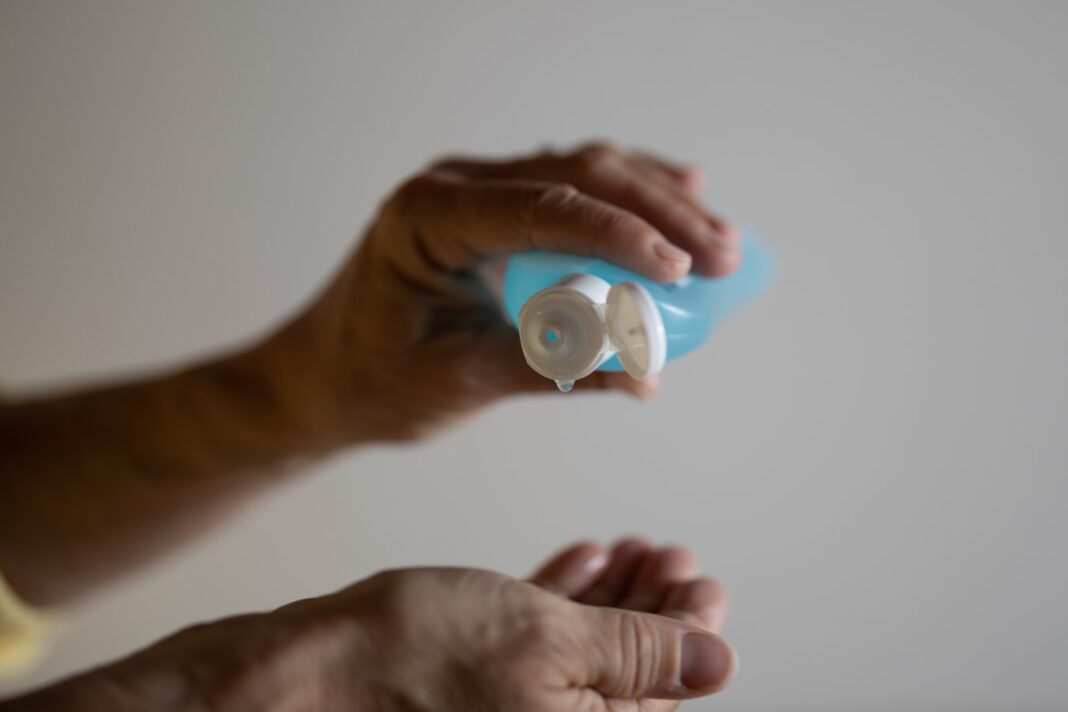
A safety firm has warned that alcohol-based hand sanitisers pose a ‘constant’ risk to fire safety and personal health and safety in workplaces that involve open flames, heat sources and flying sparks.
In a statement, CE Safety named construction as one of the industries that should consider the use of alcohol-free hand sanitiser.
The firm said that any person who carries out hot works – such as welding, soldering, grinding, cutting, burning or any other process which produces sparks – should, ‘as a rule’, use a hand-sanitising solution that is completely free of alcohol.
CE Safety added that logic does suggest that common hot-work PPE, such as welding gloves and masks, would negate the need for non-alcoholic sanitiser – but said that it cannot be assumed that skin will be covered at all times.
The alcohol-based hand sanitisers that are currently on the market are classed as either ‘flammable’ or ‘highly flammable’. CE Safety explained that the definition comes down to the liquid’s flashpoint.
The firm said that ‘flammable’ means that the liquid has a flashpoint greater than 21 degrees Celsius, but lower than or equal to 55 degrees celsius. ‘Highly flammable’ means a flashpoint below 21 degrees celsius.
A CE Safety spokesperson said, “This means that if any of your work environments involve open flames/heat sources, flying sparks or anything of that nature, the use of alcoholic hand sanitiser poses a constant risk to fire safety and personal health and safety, because the vapour could conceivably ignite.”
The firm said that research into the effectiveness of non-alcoholic hand sanitiser at neutralising Covid-19 is still ongoing. Adding that the general consensus ‘does seem’ to be that hand sanitisers that have alcoholic content of at least 60% are the most effective at killing germs.
The spokesperson added, “However – and it is a big however – the best way any person can protect themselves against Covid-19 is by washing their hands with soap and water for at least 20 seconds.”








